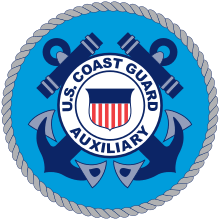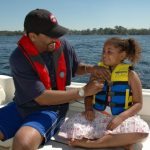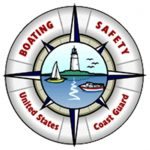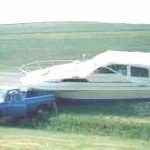Eight of us from our local Coast Guard Auxiliary unit are leaving on a weekend trip tomorrow. We’re going to take three Auxiliary boats to the Mississippi River for a training exercise and general safety patrol. This trip has been a bit out of the ordinary for us in many ways, not the least of which is that we’ll be operating outside of our normal AOR (area of responsibility), and in another CG District.
During our lengthy preparation for this exercise, it dawned on me that the preparations we were doing for this trip, and the trip itself, was the stuff of which boating textbooks are written. Some of what we’ve had to do, and will do, won’t apply to the average recreational boater planning a multi-vessel excursion, I admit. For example, we had to establish procedures for communications with a Coast Guard group to which we had previously never reported. But most of the things we did, and will do, easily could serve as a manual for any group of boaters contemplating a trip to unfamiliar waters.
Meet and greet
Soon after the decision was made to engage in this exercise, and well in advance of the actual trip date, we got all the skippers together and held a “skippers briefing.” You should do the same. At this meeting, you decide how to get to where you’re going, what you’ll do when you get there, and how and when to get back again. Of course, there are dozens of details to be worked out and agreed upon, but it’s much better to do it in the comfort of somebody’s family room than after you get to the launch ramp.
At our meeting, each skipper was given a copy of the chart of the operating area, a map of the route we use to trailer to the water, details on overnight accommodations, a checklist of equipment and supplies, and a reminder to grease the bearings on the trailer and carry sunscreen. We talked about everything from where to meet to start our “convoy,” to storing our tow vehicles and trailers, to what we were going to do for lunch the first day out.
Tomorrow, when we arrive at the launch ramp to start our exercise, we’ll hold another short briefing in a remote location away from the ramp area. I urge you to do the same. First of all, this gives your wheel bearings on your trailer time to cool down before you plunge them in cold water. If you’ve traveled any distance at all, they’ll be hot, and introducing them to water immediately could result in serious problems. So while they’re cooling, take care of the hold-down straps, load your stuff in the boat, check the weather forecast, and together review what you planned to do that day. Just don’t tie up the launch ramp while you’re doing all this.
Keep ’em posted
One of the first things we’ll do after we hit the water tomorrow is transition through a Mississippi River lock. For some of our boat crew, this will be the first lockage, so we’ll take plenty of time on our way to the lock to brief them on exactly what we’ll be doing. We’ll tell them that we’re going to hang back in a safe area below the dam waiting for clearance from the lockmaster to enter the lock. While we wait, we’ll fender the boat, and put one crewmember forward and one aft, each with boat hooks to fend off from the lock wall. When clearance is given, we’ll enter the lock slowly, and position ourselves on the wall nearest shore, keeping the boat parallel to the lock wall.
This briefing will make our first lockage far more interesting and educational to our crewmembers, and will help assure a smooth passage for our boats. For you, this type of briefing before a new experience — whether it’s locking through or any other unique adventure — can enhance the pleasure of the trip for your family or guests.
Get the idea? The more you plan, the fewer surprises. The more you talk about and anticipate what lies around the next bend of the river, the more enjoyable the experience.
No surprises
I know what you’re thinking. Any trip, like most other things in life, can be ruined by too much regimentation, over-organizing or micro managing. I agree. You can’t turn the planning thermostat up too high. Surprises in life make life more exciting. But the difference lies in what kind of surprises they are. Surprises I like are the kind where you round a bend in the river, and a family of whitetail deer has come to the water’s edge. It’s something you can’t plan for. Surprises I don’t like are getting to the launch ramp and finding that one of the boats in the group has two dead batteries. Planning could avoid or at least minimize those kinds of surprises.
So when we leave tomorrow, we’ll be as prepared as possible for a weekend on the mightiest of all rivers. And although I’ll be excited as a young boy tonight when I hit the sack, I won’t toss and turn all night wondering if we may have forgotten something.
I hope.







